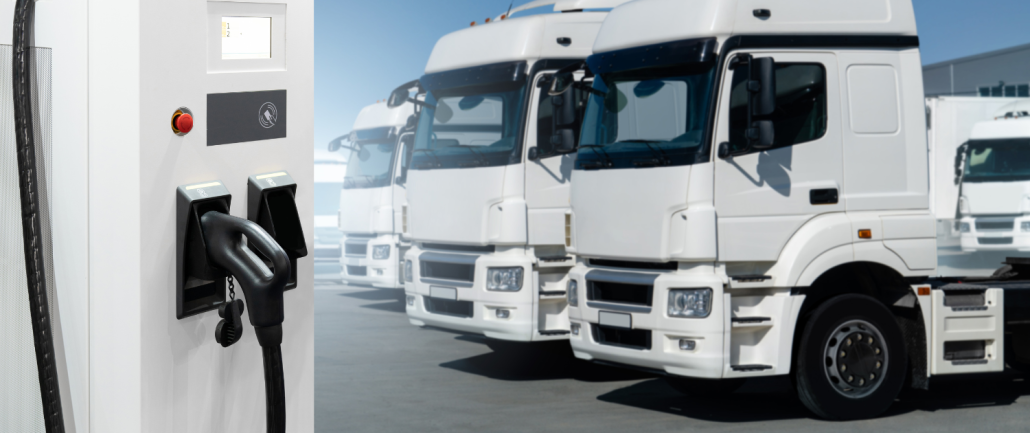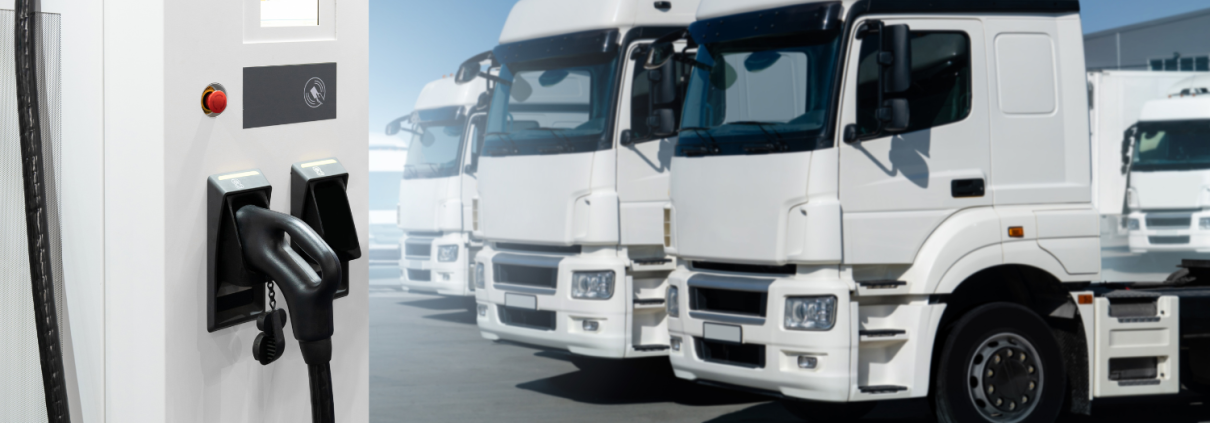
When it comes to hot topics in the transportation industry, there’s hardly one as divisive or impactful as the rise of electric vehicles (EVs).
As the push for greener and more sustainable practices gains momentum across all sectors, freight carriers find themselves at a crossroads, weighing the benefits and challenges of adopting EV technology.
Keep reading to learn how investing in electric trucks can reduce operational expenses and improve efficiency, along with important considerations to make before adopting this new technology.
What are the Benefits to EVs?
A lot of progress has been made in recent years to improve EV technology, from an increase in charging infrastructure across the nation to improved vehicle engine functioning.
While some challenges remain for carriers looking to make the transition, there’s no denying the major impact that investing in electric trucks can have on every fleet, no matter the size.
- Reduced emissions and improved sustainability are some of the most significant benefits of switching to electric trucks. In the United States alone, where diesel-fueled delivery trucks and trailers only compose around 4% of total vehicles, they generate nearly half of nitrogen oxide emissions and close to 60% of fine vehicle particulates.
Electric trucks, however, produce zero tailpipe emissions, significantly reducing greenhouse gasses and air pollutants. This makes EVs a logical choice for carriers looking to reduce their footprint.
Additionally, as state-level and federal environmental regulations on the transportation industry continue to increase, EVs have become the best alternative for fleets looking to abide by changing legislation. Many governments also offer incentives such as tax credits, grants, and rebates for purchasing electric vehicles, which can offset the higher initial costs.
- Lower operating costs is another perk to investing in electric trucks. Although the upfront investment of making the transition can be daunting, the Georgia Institute of Technology found that electric trucks are around 50% more efficient to operate than diesel trucks, making them at least 20% less expensive than diesel-fueled ones.
Because electric trucks have simpler engines and don’t need oil to operate, they incur fewer mechanical issues and require less frequent servicing than traditional diesel trucks.
- Increased efficiency is a proven benefit of adding electric trucks to a fleet. Electric trucks offer high torque and smooth acceleration, which can improve driving performance and efficiency.
Studies have also shown that when it comes to deliveries that require frequent stops, such as city routes or last mile delivery, EVs perform better than traditional diesel trucks. This is partially because electric trucks use regenerative braking systems that capture and reuse energy during braking, further enhancing their efficiency.
EVs are also often touted as a safer option, as they are usually equipped with the most up-to-date safety features such as emergency braking, forward collision warning, automatic lane-keeping and enhanced traction control systems.
What are the Drawbacks?
As with any new technology, it’s crucial to consider the potential challenges and difficulties of making the transition. Ongoing discoveries and advancements in EV technology mean that the landscape is continually evolving, requiring careful consideration.
- The high upfront cost often is enough to scare fleet managers away from investing in electric trucks. Because they are relatively new technology and are not as widespread as diesel trucks, the initial investment in EVs remains far higher than traditional vehicles.
- Limited range is another common concern for motor carriers. Electric trucks typically require at least an hour to recharge fully even with the fastest systems, which can be a significant drawback for long-haul routes.
Electric trucks have an average range of 200-500 miles per charge, with a longer range requiring a larger battery. However, the larger the battery, the longer it will take to reach a full charge.
- Limited availability of charging stations must also be considered, especially due to the limited range of electric trucks. Although charging infrastructure for EVs has drastically increased across the country in recent years, rural areas still have significantly fewer options than cities.
- Longevity and familiarity are important factors to consider when discussing the future of EVs. Electric trucks and vehicles simply haven’t been around long enough for experts or users to fully understand their long-term performance, durability, and maintenance needs. This lack of long-term data means that potential issues, such as battery degradation over time and the overall lifespan of the vehicles, are not yet fully known.
Additionally, when it comes to repairs, many technicians are still in the process of learning the intricacies of EV technology. This can lead to longer repair times and increased costs as diagnostic procedures for electric vehicles are still evolving. The availability of replacement parts and specialized tools for EVs is also not as widespread as it is for diesel-powered trucks, potentially causing further delays in maintenance and repairs.
Looking for more information on the newest tps and trends in the trucking industry? Be sure to check out the rest of our Employer Blog posts and follow us on social media to stay up to date.







